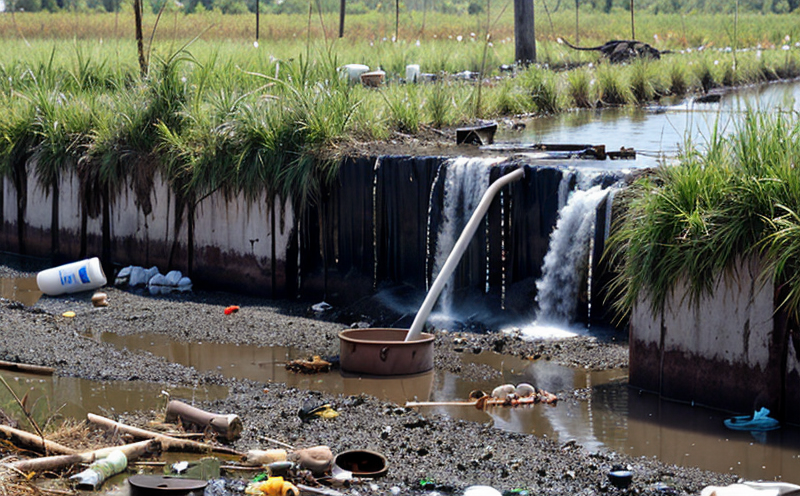Spices Pollutant Testing
The demand for spices in the global market is growing steadily due to their culinary and medicinal uses. However, the quality of spices can be compromised by various pollutants including heavy metals, pesticides, and mycotoxins. These contaminants not only affect the sensory attributes but also pose significant health risks if consumed in high concentrations. Therefore, it is essential for industries involved in spice production and trade to ensure that their products meet stringent safety standards.
Our laboratory offers comprehensive testing services tailored specifically towards detecting pollutants in spices. Our team of experts uses advanced analytical techniques such as Inductively Coupled Plasma Mass Spectrometry (ICP-MS), Gas Chromatography-Mass Spectrometry (GC-MS), and High Performance Liquid Chromatography (HPLC) to identify even trace amounts of harmful substances.
One of the key pollutants we test for is heavy metals like lead, cadmium, arsenic, and mercury. These elements can accumulate in plants through soil contamination or improper agricultural practices. Prolonged exposure to these metals has been linked to severe health conditions such as kidney disease, neurological damage, and cancer.
Pesticides are another major concern when it comes to spice safety. Many farmers use chemical pesticides to protect their crops from pests and diseases but some residues may remain on the final product. We employ several methods including residue analysis by GC-MS to determine whether these chemicals exceed acceptable limits set forth by international standards such as Codex Alimentarius.
Mycotoxins are toxic secondary metabolites produced by certain molds that can grow on improperly stored or processed spices. They pose a significant threat because they cannot be destroyed through normal cooking processes and require specialized testing methods like Immunoaffinity Column Cleanup followed by LC-MS/MS analysis.
Our laboratories adhere strictly to ISO 17025 accreditation requirements which ensures that all our testing procedures are accurate, reliable, and reproducible. This means that you can trust the results we provide with confidence knowing they meet international quality standards.
By choosing our spice pollutant testing service, businesses involved in this sector gain access to precise data about their products' purity levels which helps maintain brand reputation while complying with regulatory requirements worldwide.
Why Choose This Test
- Precise detection of heavy metals such as lead, cadmium, arsenic, mercury in spices.
- Advanced techniques like GC-MS for pesticide residue analysis ensuring compliance with international standards.
- Immunoaffinity column cleanup followed by LC-MS/MS for accurate mycotoxin quantification protecting consumer health.
- Strict adherence to ISO 17025 accreditation guaranteeing high-quality, reliable results.
Competitive Advantage and Market Impact
The ability to provide thorough testing for pollutants in spices gives businesses a competitive edge by ensuring product quality. Consumers are increasingly concerned about what they eat and prefer brands that prioritize safety and health benefits over cost savings.
By offering reliable pollutant tests, companies can enhance their reputation among consumers who value transparency and trustworthiness. This strengthens customer loyalty and fosters long-term relationships with suppliers and distributors.
In addition, meeting regulatory requirements helps avoid costly penalties and fines associated with non-compliance. It also opens up new market opportunities in regions where stringent quality controls are enforced.
Use Cases and Application Examples
Our spice pollutant testing service finds application across various sectors including food manufacturing, import/export trade, research institutions, and government agencies involved in public health monitoring.
- Food Manufacturing: Ensuring that spices used in food products comply with national and international safety standards.
- Import/Export Trade: Providing certification documents required for clearance through customs inspections ensuring compliance with importing countries' regulations.
- Research Institutions: Conducting studies on the effects of pollutants on human health and developing mitigation strategies.
- Government Agencies: Implementing surveillance programs aimed at protecting public health from potential threats posed by contaminated spices entering the market.
In summary, our spice pollutant testing service plays a crucial role in maintaining product integrity and consumer confidence across diverse industries. By leveraging cutting-edge technology and rigorous quality control measures, we help stakeholders navigate complex regulatory landscapes confidently.





